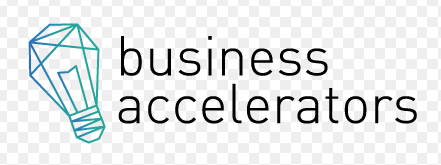Business Accelerators

By Debbie Gregory.
If you are launching or have recently launched your business startup, you are more than likely familiar with business incubators and business accelerators. Although the two seem to be used interchangeably, there are some very important differences.
While both provide developing companies access to mentorship, investors and other support that helps them become stable, self-sufficient businesses. Many large startup incubators are run as nonprofits. They generally won’t ask for equity in a company in return for access to funding or resources in the way that accelerators do.
As a result, startups generally receive far less access to capital by joining an incubator than they could expect to receive from an accelerator. As a result, most investors prefer the accelerator model.
Additionally, incubators focus on fostering slow growth that can last years, where accelerators sponsor intensive, boot camp style programs that typically are much faster growth.
Companies that use business accelerators are typically start-ups that have moved beyond the earliest stages of becoming established, meaning they can stand on their own two feet but still need guidance and peer support to gain strength.
We have listed (alphabetically) a number of excellent accelerator programs:
- Blue Startups – based in Honolulu, Hawaii, focus on technology companies, especially those that address markets in both Asia and the United States.
- The Brandery – based in Cincinnati, offers support in branding, marketing and design.
- Capria – based in Seattle, Washington, works with startups that develop innovative solutions to global problems, specifically those operating in emerging markets.
- Cofound Harlem – based in New York City has the goal to build 100 companies in Harlem that want to make a real impact on the community by the year 2020.
- Disney Accelerator – focuses on aiding technology innovators that want to create entertainment and new media experiences.
- Gener8tor – based in Wisconsin, invests in high-growth startups that have a strong team.
- Illumina Accelerator – based in San Francisco, focuses on clinical research and applied sciences, especially in the area of genomics.
- LightSpeed Innovations – focuses on helping startups in the aerospace industry in southern California.
- Luma Launch – based in Santa Monica, California, focuses on evolving technology and content startups.
- Make in LA – based in Los Angeles, focuses on hardware, from building prototypes to preparing pitches for investors.
- Matter – based in both San Francisco and New York City, focuses on design thinking.
- MergeLane – based in Boulder, Colorado, is focuses on women-led startups, Some of the programs can be completed virtually.
- SaltMines Group, based in Vero Beach, Florida, focuses on mobile technology and social media products.
- Sixers Innovation Lab – cultivates and supports the startup communities in Southern New Jersey and Philadelphia.
- StartFast – based in Syracuse, New York, is a mentorship-driven accelerator for startups working in software, mobile or Internet.
- Startup52 – based in New York City, is an early-stage accelerator program that focuses on promoting diversity.
- Startup Next – a pre-accelerator designed to help startups get into top accelerator programs, raise seed rounds of funding and achieve other early goals.
- The Yield Lab – based in St. Louis, Missouri, focuses on agricultural technology companies that want to create more sustainable agricultural products.
- VentureOut – based in New York City, is a one-week hyper-accelerator that brings in startups from around the world and connects them to members of the startup and technology communities in New York City.
- XRC Labs – based in New York City, focuses on retail and consumer goods.
Veteran and Military Business Owners Association, VAMBOA.










